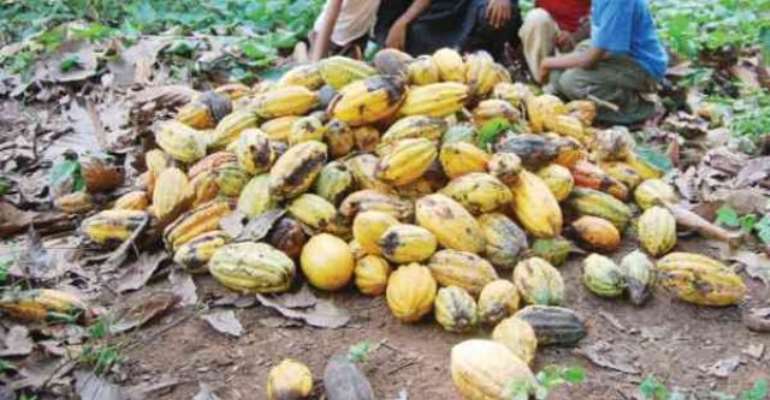COCOA FACES FARMERS’ EXODUS INTO RUBBER

By Loucoumane Coulibaly
March 26, 2010 01:29AM
Cocoa farmers in Ivory Coast abandon the product for rubber to earn higher revenues
Many farmers in Ivory Coast are abandoning cocoa and turning to rubber production as low yields, caused by diseases and ageing trees, trump benefits from 10-year highs in up-country farmgate prices.
Exporters say prices have ranged from 900 CFA francs ($1.83) per kg to 1,000 francs per kg since October, at the opening of the marketing season to early March.
Despite these highs, few farmers say they have improved their lot and some agronomists estimate that thousands in the top grower may join the exodus from cocoa to rubber.
“Despite the rise in the price of cocoa this season, lots of farmers are continuing to transform their cocoa farms into rubber farms,” said farmer Joseph Amani in eastern Ivory Coast.
As his ageing cocoa plants die out, Amani says he is increasingly replacing them with natural rubber trees.
“There are too many problems in the cultivation of cocoa compared with rubber, where the income is regular and there's no problem with disease as there is with cocoa,” said Salam Kone, whose farm is in the west cocoa belt region of Soubre.
High cocoa prices are too unpredictable and short lived, farmers say, whereas the problems associated with growing it, like black pod disease, are persistent.
“The farmers are saying that the rise in price is temporary and the price will come down afterwards,” Kone said.
The trend was also recognised this week at the meeting of the International Cocoa Council in Cameroon.
“Farmers are not fools. If they are not making enough money from it they should not stay in cocoa,” said Hope Sona Ebai, secretary general of Cocoa Producers' Alliance (COPAL).
“The interesting thing about rubber is that once you plant it you can have a monthly income from it, as opposed to cocoa where it is only once or twice a year,” he added.
Hopes pinned on reforms
An Ivorian committee is drafting proposed reforms to the cocoa sector, under World Bank supervision, that might envisage the government stepping in to stabilise prices to guarantee farmers' incomes and help them improve quality.
The reforms had been waiting for elections to reunify Ivory Coast, riven in two by a 2002-3 war that left the country in a state of political limbo. But rows over rebel disarmament and voter registration have pushed the polls back indefinitely.
Until they happen, Ivory Coast's parliament has no functioning mandate. But diplomats say President Laurent Gbagbo may use the option of enacting the reforms by decree by July in an effort to meet debt relief requirements.
Local agronomist, Albert Konan, said low yields were the key issue. Output from old trees was about 400 kg per hectare, and from a younger plantation between 600 and 700 kg per hectare. A well-kept young plantation should produce at least 1.5 tonnes.
“We need genuine political leadership and must learn how to encourage farmers to improve their orchards,” Konan said. “If nothing is done, in 10 years thousands of farmers will be growing rubber instead.” Daloa's farmers say they want to replant their cocoa farms but complain it is too costly.
“To renew a hectare, you have to pay 50,000 francs to buy the pods selected for high performance. It is expensive for farmers and don't forget, there's the fear of waiting two years for any income from them,” said farmer Attoungbre Kouame.
Source http://234next.com/
